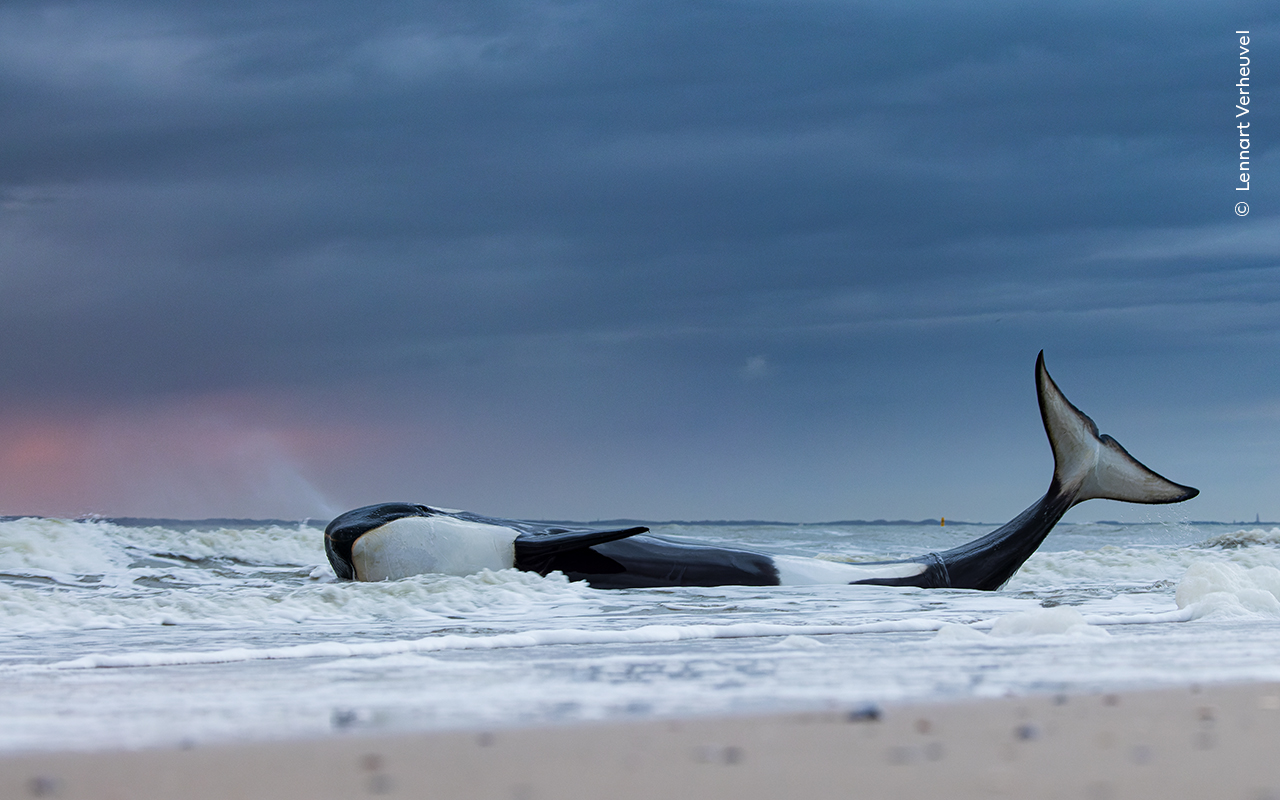Visit the exhibition
Discover the incredible stories of life on our planet through powerful photography and expert insight.
Tickets on sale now.

Lennart Verheuvel (the Netherlands) records a beached orca’s final moments.
Lying on its side in the surf, this orca had only a short time left to live. Initially rescuers were able to refloat and redirect it back into the open sea, but soon it was stranded again on the beach and died.
For Richard Sabin, Principal Curator of Mammals at the Museum and Competition Judge, it was ‘impossible not to be moved by the death-throes of this orca. The crashing waves, the darkening sky and the red light from the setting Sun provide a dramatic background to the black-and-white beauty of the orca. The raised tail flukes and vapour ejected from the blowhole show distress and weakness.’
A study later revealed that not only was this orca severely malnourished it was also extremely sick. Tests carried out at the University of Utrecht revealed the whale’s gums were seriously inflamed and analysis of its stomach showed it hadn’t eaten for a long time.
Research shows that orcas in European waters have the world’s highest concentrations of polychlorinated biphenyls. These banned chemicals can persist for many years in marine food webs, weakening immune systems and reducing breeding success in whales, porpoises and dolphins.
How you can help
Discover the incredible stories of life on our planet through powerful photography and expert insight.
Tickets on sale now.

the Netherlands
Lennart started taking photographs of animals when he was 12 years old. He’s travelled the world in order to look for particular mammals and birds, with a focus on felines. Recently, he’s also developed an interest in underwater photography where he likes to focus on big animals by using wide-angle lenses. Whenever possible Lennart tries to see new birds and mammals in his own country. In daily life he works as an attorney, so wildlife photography is an important outlet for him.
Help us harness the power of photography to advance scientific knowledge, spread awareness of important issues and nurture a global love for nature.